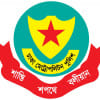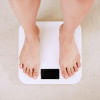Experiencing fatigue and headaches after iftar? Dr Maisha Nishat Alam explains why

Ramadan — a month that calls for fasting from dawn till dusk — which, while fulfilling, can sometimes leave you feeling like you're running on empty, fatigued, and nursing a stubborn headache. Ever wondered why? Dr Maisha Nishat Alam, MBBS, MRCP (UK), a Clinical Fellow with the NHS, sheds light on the hormonal functions and bodily responses that accompany fasting and the breaking of the fast at iftar.
"Fasting induces a complex physiological state," explains Dr Alam. "Due to an absence of food intake, there's a natural decline in insulin production as the body enters a defensive mode to maintain blood sugar levels." Insulin, a vital hormone for glucose regulation, plays a less active role during fasting hours, allowing blood sugar to be conserved rather than quickly used up.
However, the scenario shifts dramatically at iftar. "When you break the fast and consume a meal, insulin is suddenly released," says Dr Alam. This release triggers glucose to move from the bloodstream into the cells, potentially leading to a temporary drop in blood pressure. The body's immediate response to food intake after hours of fasting is to replenish cellular glucose levels, but this sudden shift can manifest as physical discomfort for many.
The nature of the iftar meal significantly influences the body's response. "Typically, we tend to indulge in heavy meals, including deep-fried foods and desserts, during iftar. This practice exacerbates the situation," Dr Alam notes. The high caloric and high glycaemic index foods prompt a pronounced insulin surge, leading to more pronounced symptoms of fatigue and headaches as the body works to manage the sudden influx of glucose.
Despite these discomforts, the body's inherent regulatory mechanisms usually restore balance within a few hours post-iftar, mitigating the initial fatigue and headaches. This resilience underscores the adaptability and strength of the human body under varying dietary conditions.
Dr Alam cautions against mixing post-iftar symptoms with hypoglycaemia, a condition characterised by dangerously low blood sugar levels. "The headaches or fatigue experienced right after iftar should not be mistaken for hypoglycaemia," she clarifies. Hypoglycaemia manifests through more acute symptoms such as anxiety attacks, palpitations, and intense hunger, signalling an emergency requiring immediate sugar intake.
To mitigate the after-effects of the iftar meal, Dr Alam advocates for a balanced dietary approach. "Heavy meals and deep-fried food are a big no," she advises, emphasising the importance of hydration. "Drinking plenty of water is a must." By opting for lighter, nutritionally dense foods and ensuring adequate fluid intake, individuals can enjoy a more comfortable and energising post-iftar experience.
That said, fasting during Ramadan is a deeply personal and spiritual experience, and understanding these physiological tweaks can help you navigate the month more comfortably. With a little preparation and self-care, we can reduce fatigue and headaches, making room for the spiritual growth and reflection that this time is all about.

 For all latest news, follow The Daily Star's Google News channel.
For all latest news, follow The Daily Star's Google News channel. 








Comments